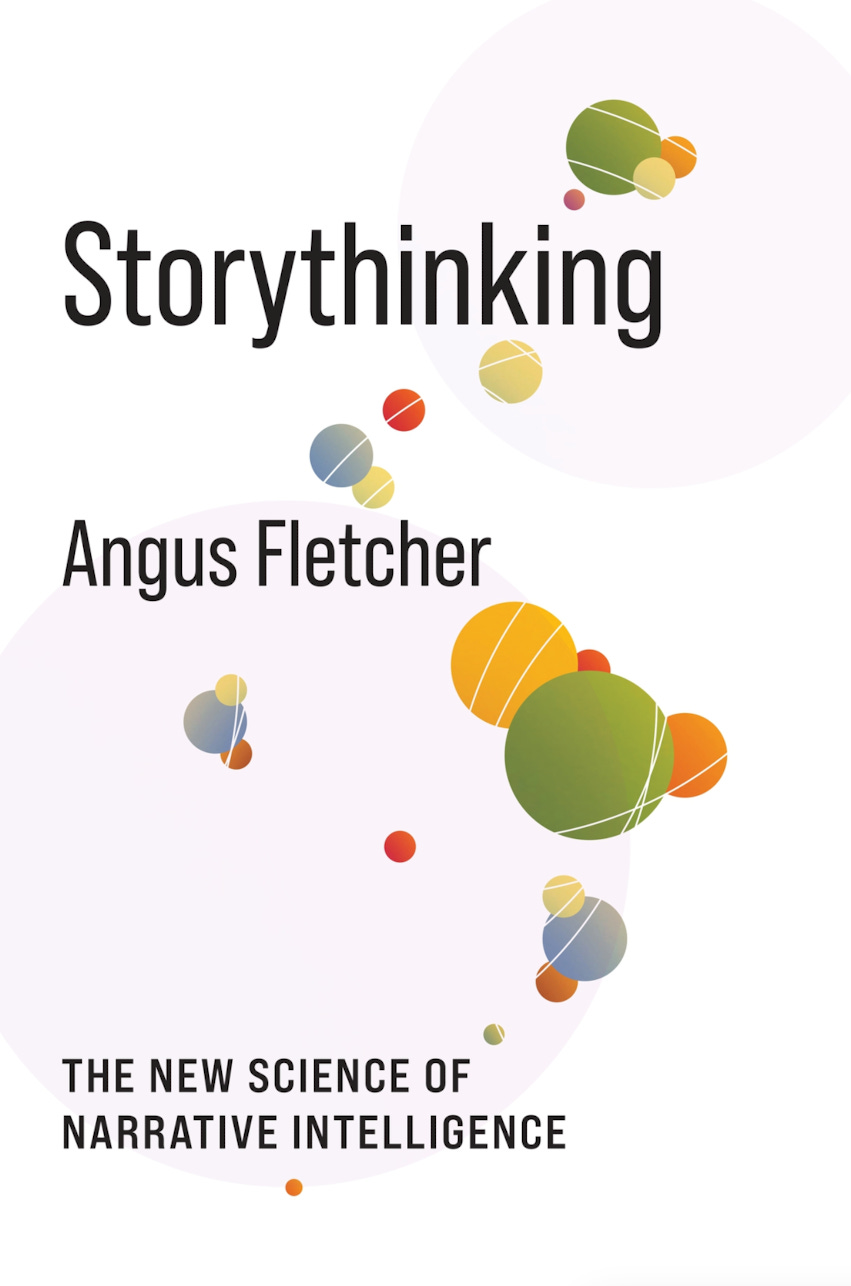Storythinking: The New Science of Narrative Intelligence, Angus Fletcher, 2023
Table of Contents (evolving)
Chapter 1 (hosted by Dan)
Chapter 2 (hosted by Tracy)
Chapter 3 (this post)
Chapter 3: The Origin of Story
I thought this was an extremely short chapter when I began processing my highlights into notes. It was a bit brief, but the big issue was I ignored quite a bit of it. The story of Cicero didn't really capture my imagination. Fletcher's description of the difference between neurons and computers also failed to grab me. But there were a couple of ideas that I did responded to; which only goes to show how much of what you get from a book is based on the interests and questions you bring to it.
Tracy’s comment. Agreed that this is a really short chapter. I was in fact captured by the rhetoric section, because the classical antipathy between philosophers and rhetoricians was (still is?) a huge rift affecting the development of western civilization, especially politics. Fletcher’s neurobiology application is new to me and not entirely convincing, although having spent some time on the theoretical foundations of “cultural evolution” (Boyd and Richerson), I’m not surprised there are biological/psychological mechanisms that internalize and mirror or mimic (head off) the external process of natural selection, adapting behavior “beforehand” rather than waiting for costly natural selection to operate across generations.
I mentioned in my comments to Tracy's post about Chapter 2 that Fletcher's approach had resonated with some thoughts I've been developing since grad school about the difference between History (at least, the way I like to do it) and Social Sciences such as Sociology, Political Science. And maybe even Anthropology, with apologies to David Graeber. The issue is summarized well by Fletcher in his introduction to the chapter when He's describing Aristotle's Poetics:
where he [Aristotle] observes that stories can imitate either the way life literally is or the way life generally works. The former might seem the more intellectually valuable, but Aristotle dismisses it as simple history, devoid of real discernment. It’s the latter that yields ethics, psychology, and politics—practical sciences that, while they fall below metaphysics’ ultimate peak, still reach the upper slopes of physics (p. 36).
I think I'm reacting to the idea that Aristotle would dismiss real life because it's too random, and instead prefers generalizations from life. And maybe to the dismissal of "simple history". I don't get the sense from the way Fletcher is describing this, that it's a Platonic Forms sort of thing, where he's disdaining the examples of all the particular chairs he's coming across, in order to hold up the imagined perfect chair. But there's an interesting hint in Fletcher's discussion of plausibility as "shining a light on the mechanics of nature". This is one of the things that interests me most about narratives: trying to suss out the rules of the story-world. I think pretty much the same way about this when I'm reading nonfiction as I do with fiction. Both are reflections of the real world but neither is the real world. So it's equally legit to examine the contours and boundaries of the worlds built by folks like Historians as by Novelists.
Tracy’s comment. Fascinating parallel between philosophy-rhetoric (the classical distinction) and social science-history (Dan’s distinction). I think we have to make it three-way:
the empirical data of the sciences, “simple history,” the real world, life as it really is, to the extent we can capture it
“from life” and plausible stories, rhetoric, historical narratives (“built worlds”), novelists
Platonic abstractions, philosophy, theoretical science
The problem resembles an argument I got in recently with the well-known Stoic philosopher Massimo Pigliucci here on Substack. It all started when I naively proposed that literature carries some degree of truth in it. Would truth only be found in #1 (or #3) above? What could be the “truth” (if any) of #2 — which is Fletcher’s main thesis (and Aristotle’s), i.e. that story and narratives of the plausible sort, might have some pragmatic, adaptive “evolutionary truth” to them?
In a section called "The Deeper Origin of Story", Fletcher returns to evolutionary biology to argue that narrative thinking predated humans and even higher animals. He italicizes the borrowed term "action potential" in order to argue that acting is something living beings do in time. Once again, the point is that logic is about eternal truths and "being", but in a world where living things need to alter their behaviors to respond to their environments (or to other living things), it makes sense to develop a way to ask, "what would happen if...?"
Fletcher calls this "creative action". I think that's on the edge of claiming too much. Or at least, I don't think in the majority of cases in the history of life there was a self-conscious decision to be "Creative". However, in a small-c, more modest sense, everything that's novel is creative. But does that get us any closer to this argument's (or narrative's) destination?
Tracy’s comment. Definitely there is too much sliding around on what is “creative.” Whatever evolved with the first neurons and then neural networks and nervous systems, it’s a long way from there to human storytelling! Still, the idea seems to be that behavioral options and trial and error somehow entered the mix, and it’s this shift that matters. Organisms somehow shift from genetically determined behavior that can only be weeded out through external natural selection to some kind of internalized, experimental (“creative”) process. Whatever the mechanisms of that, I do think Fletcher is on to something.
I wrote my notes, then Tracy added hers. After letting a few days pass and reading Tracy’s additions, I thought I’d add a final comment. I think I agree with Tracy’s assessment that although there may end up being a bit too much “sliding around” in a lot of Fletcher’s argument and narrative, he may indeed be on to something.
Until next week, when Tracy writes and I comment.





